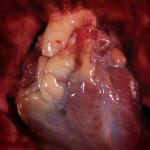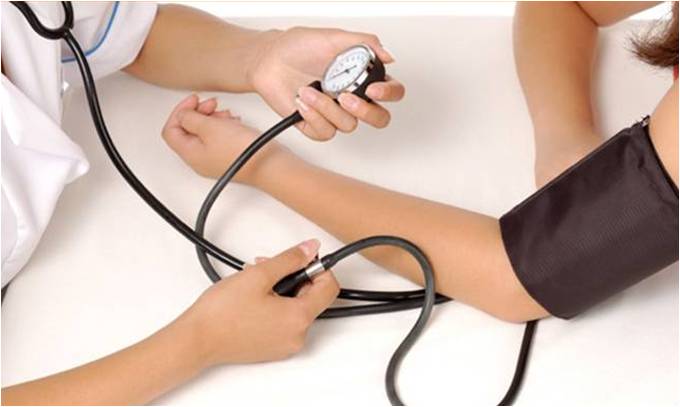
Heart Disease, BP, Cholesterol, Gallstones, Stroke, Constipation and Diabetes Natural Cure:
Precautions: Avoid red meat, spinach, rice, spicy and fried or oily foods, bakery items, junk foods, soft drinks, cold water, black tea, and other beverages, alcohol, tobacco, betel leaves, black tea, cigarettes, etc. Part I: Follow all below Dietary and Medicinal Prescriptions with Complete Abstinence: 1. Golden Asbhool Husk: Add 1 spoon of pure turmeric in 15 tablespoons of Asbagol Husk to make it Golden Husk. Thrice a day, mix one tablespoonful of it, 2 pinches to half teaspoon of [Basil Seeds (Takhm Bilungu) or chia seeds, “Maqvi Mufarah Powder”] in a glass of lukewarm milk or freshly mixed juices and drink immediately on an empty stomach (In case of dysentery, take it 6 times). Before sleeping, put the pinch of it in the right and left cheeks (If you have a disease in mouth, always keep more. Rinse before eating. 2. Fresh Mixed Juices: Daily 4 to 6 times, add 1 tablespoon each of [Lemon Juice, Roasted Barley Flour (Sattu), Julep (Arq) of [Atropine (Mako), Chicory (Kasni), Fennel (Sonf), Mugwort/Artemisia Vulgaris (Berunjasef) or Rose (Gulab)], half teaspoon of Basil Seeds (Tukham Balangu) or chia seeds, 2 pinch of Sodium Bicarbonate (make sure to avoid baking powder) and a pinch of Black Pepper Powder] in half glass of freshly mixed juices of [green gourd (Kaddu), carrot (Gaajer), beetroot (Chiqandar), apple, watermelon, Grewia (Falsa)] (Do not drink any juice alone, but must drink the juice of 4 to 6 things together). 3. Unfried Curry: Vegetables [all pumpkin, gourd, zucchini, turnips, carrots, beets, cabbage, cucumber, (mustard greens (Saag) mixed with spinach & equal fresh coriander), etc.], cooked without frying on light flame, using a little [black pepper, pink salt, turmeric, garlic, ginger, fresh or dried coriander, mint, fennel, tomatoes (without skin and seeds), fenugreek, peas, button mushrooms, 2 boiled egg-whites], and water. 4. Healthy Salad: Mix a little apple cider vinegar and olive oil in the Salad of [tomato pulp, cucumber, carrot, beetroot, cabbage, turnip, salad leaves, boiled egg-whites]. 5. Digestive Sauce: Make a sauce of [3 parts fresh coriander, 1 part fresh mint, ½ part fresh basil or Tulsi, a little [garlic, ginger, fennel, pomegranate seeds, olive oil, lemon juice, black pepper, mineral salt] and mix it with every meal. 6. Digestive Green Tea: Boil fresh branch of [mint, basil (Niazbo)], pinch of [fennel, moringa (Suhanjna) powder or branch], 2 jujubes (Unab), 1 small cardamom in a cup of water, add honey and drink 2 to 3 spoons after each hour, at normal temperature throughout the day. 7. Fresh fruits: Apple, Fig, Grewia Asiatica (Falsa), Watermelon, Guava, Pear (Nashpati), Sweet Lime (Meettha), Papaya, Persimmon (Amlok, Japanese Fruit), Jambolan (Jamen), Apricot (Khobani), Sugarcane (Ganderi), Wheatgrass Juice, Boiled or Roasted Maize Corns/Cobs/Grain. 8. [ Fresh Fagonia (Dhamasa) or Suchi Booti: (Azghake or Spilaghzai in Pashto, Dhamiaan in Punjabi, Dramao in Sindhi). Wash whole green branches including flowers, leaves, seeds, thorns, make a paste and prepare walnut-sized balls (Laddoo) and freeze them. Thrice a day, place 1 Fagonia Ball in a glass of hot water. When desolved, strain it through a sieve and drink after meals (normal in summer, lukewarm in winter) -OR- [Twice a day, two hours before meals, soak half teaspoon of Green Dhamsa powder (including flowers, leaves, seeds) and half teaspoon of Sumbloo Root (Darhuld) Powder in warm water. Filter it when normal and drink it after meals. This water can be mixed with freshly mixed juices and drunk after every hour.] 9. For Body Dryness, Sweet Sleep: Apply Mustard oil lightly on the head, navel, nostrils, hands, soles of the feet (do not apply pressure on any tumor). Take a teaspoon of sweet Gourd Seed oil with lukewarm camel milk at night. 10. For Vitamin D and Calcium: D-Cal Powder: [Grind to powder the Moringa (Suhanjna) leaves, Asparagus Adscendens (Sufaid Moosli), Rock Sugar (Kooza Misri) (50g each)] and take equal to 1 to 2 chickpea, twice a day, with lukewarm milk or freshly mixed juices. Daily eat 2 boiled egg-whites and once a week take 1 capsule of fish oil. Daily sit in cold sun for an hour. 11. For Lack of Blood (Anemia), Burning of Hands & Feet or Frequent Urination, Shivering Fever: Khoon Khoon Afza Powder: Soak 1kg Lime in 4kg water, and after 4 days filter the lime water. Make powder of copperas (Heera Kasees) 250g and Sodium Bicarbonate 250g and then grind the powder in Lime Water in a Mortar (Kharl) until whole Lime Water is dried in powder. Then add the powder of [blak seeds (Kalonji), chickpea seeds, carom seeds (Ajwain Desi) (150g each), ammonium chloride (Noshader), black pepper (100g each)] and mix it well. Take 1 to 3 grams of powder, 3 times daily, after meals with luewarm milk or freshly mixed juices. Part II: Only as per Need (i.e. not necessary for all): 11. For Closed Arteries & Volves: Mix one cup juice each of (lemon, ginger, garlic, apple vinegar) and cook on low heat. Put off the flame when it remains 3 cups. Then mix 2 cups of pure honey and store in glass jar. Take a tablepoon in water every morning on an empty stomach -OR- Take 1 tablespoon of *Homeo medicine “Jam-e-Sehat”* in little water, twice a day, on an empty stomach. 12. Strengthen the Heart Muscle and Ejection Fraction: Heat Ajwa or common date kernels in a dry pan to remove the moisture and then grind them to powder. Then add the date pulp and a little equal weight honey to make a paste. Take a spoonful with lukewarm milk in the morning and evening on an empty stomach. 13. For Cholestrol, Gallstones: Mix pinch of roasted Borax (Sohaga Biryan) powder in Extra Virgin Olive Oil & Lemon Juice (teaspoon each) and drink it half an hour before breakfast. 14. For Gallstone Pain: Take 5 to 10 drops of Homeo medicine “Hyoscyamus Niger” mixed with half a cup of water. 15. Eliminate Gall & Kidney Stones: Take half teaspoon of “Jawarish Kamuni” and half teaspoon of powder of [senna (Sena Makki) 80g, dried ginger (Soonth) 50g, ammoniac (Noshadar) 20g,

